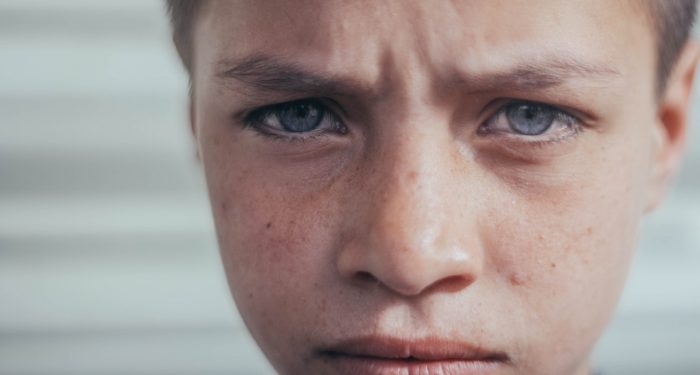From the outside, I look like a rational mother.
I check all the boxes of what my children should do and accomplish for themselves. I follow sound advice, and I’m not enmeshed in their everyday lives.
I’m sure my kids would say they have a great mom and wouldn’t think at all otherwise. I see this in their eyes when they smile, and I hear it when they erupt into laughter with me.
But I must say, my internal makeup doesn’t match the brave face I color on every morning. In the middle of the night, I wake up sweating—terrified for my children’s safety and well-being. There isn’t a worst-case scenario I haven’t dreamt up or lived out in my mind.
And I’ve known I must have projected these fears into my parenting on some level. But, I guess I hadn’t wanted to look at this in myself before.
When I attended the online lecture at UCLA Resnick Neuropsychiatric Hospital with Dr. Eli Leibowitz, the author of Breaking Free from Childhood Anxiety & OCD, I knew it was time to listen—for my sake and my children’s.
My kids are worriers.
They fret over their grades in school and about letting people down. They don’t like making mistakes, even little ones. And there’s a persistent buzzing of concern, which floats above them. They even worry about worrying me.
According to Dr. Leibowitz, it is the overprotective parent with a demanding tendency who creates an unnerving environment for their child. And it is the combination of one overprotective and one demanding parent who encourages an abundance of anxiety to stir within the child.
When Dr. Leibowitz said, “Overprotective parent,” I felt like he was speaking directly to me. I’ve struggled to find balance between letting my kids go out into the world and pulling them back in to protect them. This push and pull behavior I’ve learned is one of the traps parents fall into that enables anxious behaviors to fester. It suggests children can’t handle difficult situations by themselves.
I wanted to tell Dr. Leibowitz that it’s not that I don’t trust my children and their natural instincts; I just don’t trust that the world will be kind to them.
Maybe, it was Columbine or Parkland or all the other school shootings that eroded my faith—along with my healthy sense of denial. Or possibly my upbringing is what made me want to shield them from harm. I fended for myself, often, when I was little. I never wanted my children to feel as alone as I had or forgotten the way I did.
And I know I’ve overcompensated as a parent for what I lacked as a child.
But, no matter the rationale, I’ve learned that parents must reign in their fears and react supportively to their child’s uneasiness in order to decrease anxiety.
Dr. Leibowitz has developed SPACE (Supportive Parenting For Anxious Childhood Emotions), a parent-based treatment approach for children and adolescents with anxiety. Parents learn to alleviate their children’s anxiety by changing the way they, themselves, respond to anxiety-provoking situations. They learn to offer both an acceptance of their child’s concerns and confidence in the child’s ability to cope.
Through the online resources, I’ve learned to find a better balance between being overprotective and demanding.
I’ve come to understand that of all the emotional problems that occur during childhood and adolescence, anxiety is the most treatable, and how parents react to their child’s anxiety greatly determines how severe and disruptive the anxiety will become.
And so, I blame myself for my children’s anxiety. I don’t do this with a pointed finger or a harsh tone. I do this to hold myself accountable for my internal dialogue and the amount of fear I let circulate within my body. I call upon myself to remain conscious, and I do this because I love myself and my children too much to live otherwise.
~


 Share on bsky
Share on bsky





Read 41 comments and reply